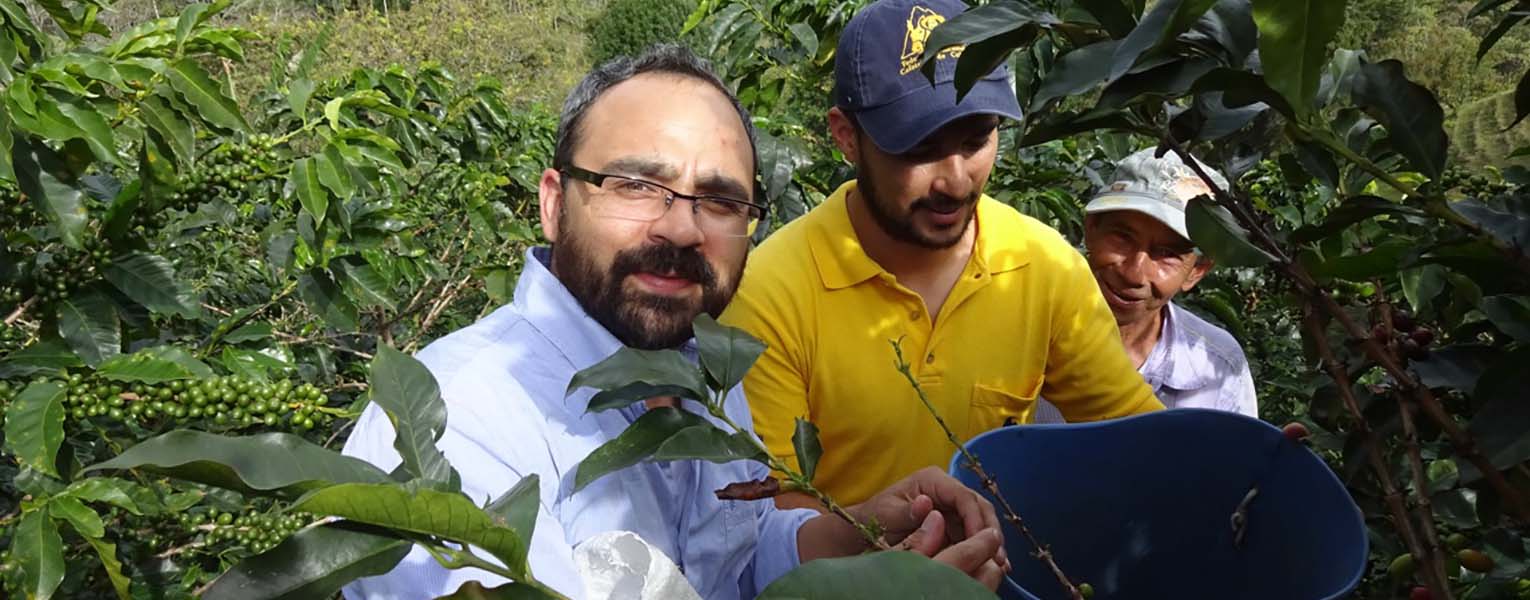12/27/2022
Coffee Crisis
FAU Researcher Wins Prestigious Award to Study Plight of Coffee Farmers
By Bethany Augliere
Just like stocks, the price of coffee changes daily, making coffee a risky economic livelihood in the world of farming, according to Phillip A. Hough, Ph.D., an associate professor of the Department of Sociology in the Dorothy F. Schmidt College of Arts and Letters.
“It’s a naturally volatile market, as prices paid to growers fluctuate wildly due to coffee’s harvest cycle and to trading whims of financial speculators. Nowadays, the risks of producing are even stronger because it’s an agricultural commodity that’s influenced by changing weather patterns driven by climate change,” he said.
Periods of low prices can bankrupt growers and even push them out of the industry altogether, said Hough, adding, yet, if coffee sales prices happen to be high during a harvest time, growers can do quite well for themselves. “The risks and possible rewards make coffee growing a high stakes gamble,” said Hough who spent the last two decades researching and writing about farming and labor relations in remote regions of Colombia, one of the biggest coffee producers in the world.
To understand more about the plight of millions of coffee farmers across South America, Africa and Asia, and how they survive this unstable market, Hough recently earned a prestigious Fulbright Global Scholar Award to conduct research for publication.
The Fulbright program, which aims to build understanding between the U.S. and other countries, is the world’s largest and most diverse international educational exchange program.
“I feel completely honored,” Hough said. “It’s a wonderful opportunity to meet people around the world and learn from their experiences.” So far, Hough has completed the first leg of his work in Colombia, interviewing growers, farm laborers, politicians, agronomists and others. His next fieldwork is slated for Kenya in the summer of 2023, and Vietnam in 2024.
“While globalization has made it harder for farming communities to thrive in rural areas, coffee is one of the few agricultural commodities that still provides rural communities living across the global coffee belt regions of Latin America, Africa and South Asia with some hope to continue living a rural livelihood,” said Hough, adding it’s produced on mostly small- and medium- sized farms by farmers themselves. “If we could learn how to make coffee farming more sustainable both economically and ecologically, then maybe we could figure out how to prevent some of the world’s pressing problems like over-urbanization and global unemployment,” he said.
If you would like more information, please contact us at dorcommunications@fau.edu.
